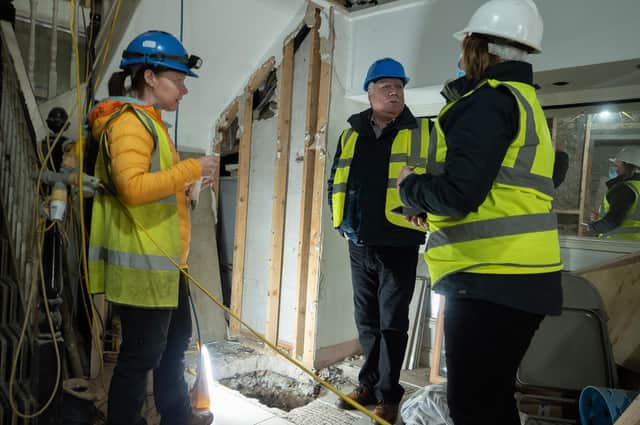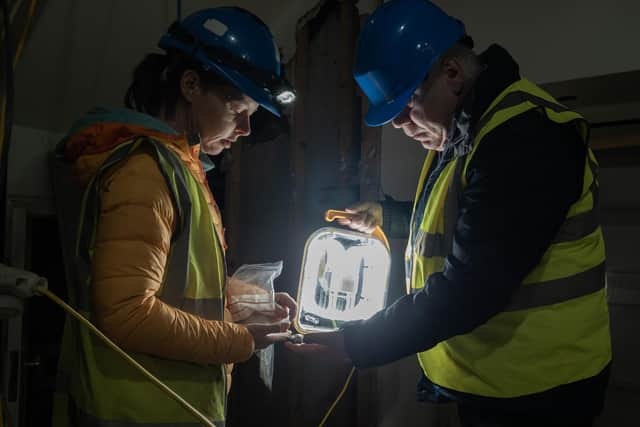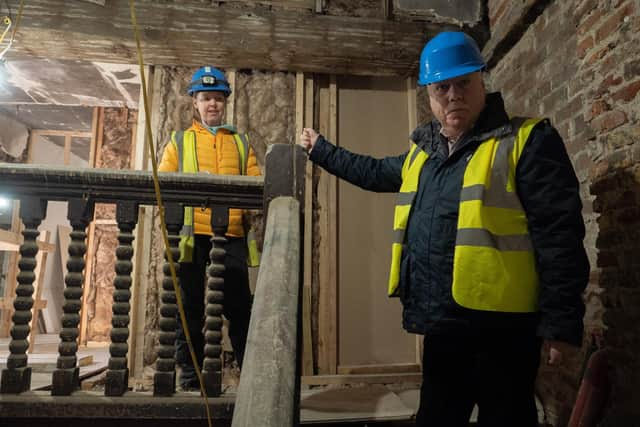Carrickfergus High Street archaeological works reveal building's late medieval origins


Carrickfergus Townscape Heritage Initiative (THI) is entering the final stages of a six-year programme to regenerate some of the many historic buildings in the area.
The THI is an ambitious regeneration scheme for the town’s conservation area supported by £1.788 million in funding from The National Lottery Heritage Fund, and £0.628 million from Mid and East Antrim Borough Council.
Advertisement
Hide AdAdvertisement
Hide AdThe Housing Executive has also awarded funding through the Heritage in Housing Programme to the THI, to introduce residential accommodation in vacant floorspace.


Number 10 High St - one example of a historic building supported through the THI - is revealing some exceptionally rare finds. Behind its traditional Victorian style frontage, the professional team has uncovered a considerably older building than its street front would suggest, with evidence pointing to a late medieval structure dating back to the 1600s.
Of particular significance is the presence of a rear stair tower containing part of a 17th century (possibly Jacobean) staircase leading from the first to the second floors.
Project archaeologist Ciara McManus, of Farrimond McManus, has been on site excavating two test pits to try to piece together the clues.
Advertisement
Hide AdAdvertisement
Hide AdFragments of animal bone and potentially medieval pottery have been found and will be examined by experts.


Preserving town's heritage
Chair of the THI project board, Councillor John McDermott said: “What’s great about this project is that we are preserving Carrickfergus’s heritage by bringing new life to these historic buildings. This scheme will create two new two bedroom apartments in empty floorspace in the heart of the town centre, while introducing traditional shopfronts and recreating the historic character of architectural features, which will greatly enhance the streetscape of High Street.”
Stephen Salley, project architect from HBK architects, explained: “Urban buildings that can be demonstrated to have pre-1700s origins are rare in Northern Ireland, with those of late medieval or Tudor-era pedigree virtually unknown. Therefore, 10 High Street is a structure which despite not inconsiderable alterations in recent decades, is of considerable archaeological and architectural importance with its setting also largely intact.”
Paul Mullan, director, National Lottery Heritage Fund NI, said: “We are delighted to see this rare survival of Carrickfergus’s built heritage being conserved and brought into sustainable use for future generations.”